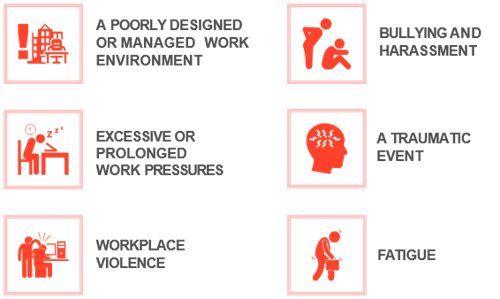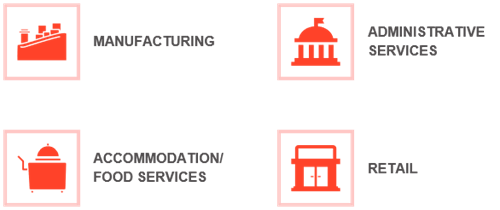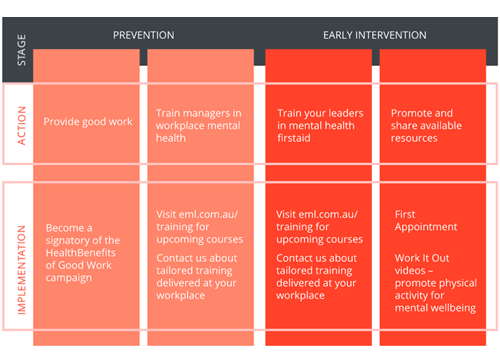One in five Australians is expected to experience mental illness at some point in their lives. For employers, this means that at any given time, a proportion of your workforce will be experiencing mental ill health, whether related to their job or not. But there are steps employers can take to prevent and better manage mental injuries in the workplace.
According to SafeWork NSW, almost 80% of NSW businesses do not have a cohesive or preventative approach to mental
health in the workplace.
The number of psychological injuries at work has increased significantly over recent years. As well as the social and emotional costs to the worker and their loved ones, mental injuries are now costing employers around $543 million per year*. The financial impact on employers is due to the significant workplace compensation costs. 7,200 Australians are compensated for work-related mental health conditions, equating to around 6% of workers’ compensation claims*.
Mental illness in the workplace
Mental illness can impact the workplace in two ways – either as a direct result of employment, or from external factors that impact the person’s general wellbeing and consequently, their work performance.
Building a healthy workplace is about recognising both of these sources of mental ill health and developing a holistic approach to ensuring mental health is a priority across the business. According to SafeWork NSW, almost 80% of NSW businesses do not have a cohesive or preventative approach to mental health in the workplace.
Often, there are ‘controllable’ factors that employers can address, which are known to reduce mental wellbeing and increase the risk of psychological injury.
Controllable factors influencing mental health at work, include:

While major advancements have been made in relation to the prevention of physical injuries in the workplace and improvements to an employee’s physical wellbeing, there remain some barriers for employers in taking more proactive steps around the mental health of their employees.
The top three challenges cited by employers are:
- STIGMA - undermines opportunities for employees to get help early. Stigma around being mentally unwell can originate from society or workplace culture, as well as from the individual themselves.
- BLIND TO THE SYMPTOMS - unlike a physical injury, the signs of psychological injury or mental illness can be difficult to spot and may not be immediately apparent.
- POWERLESS TO HELP - many employers aren’t comfortable asking their staff about their mental wellbeing, because they don’t know how to help or feel it’s not their ‘place’ to do so.
The good news is these challenges can be overcome.
Typical compensation payment per claim was $24,500 compared to $9,000 for all claims*.
The most at-risk workplaces
According to a recent study led by UTS and the University of Sydney titled ‘Mentally Healthy Workplaces: A Return on Investment’, industries in NSW with the highest rate of mental ill health are:

When it comes to post traumatic stress disorder (PTSD), emergency services workers and defence force personnel are at greater risk compared with the rest of the population.
There are many reasons for this. It’s not simply that they are frequently exposed to trauma. Understanding these causal factors and developing ways to mitigate them is an area of research for EML. We’ve invested in research and programs that aim to deliver better outcomes for first responders. Many of the resources and initiatives that have been developed can also be adapted for use in other industry sectors.
Best practice psychological injury management
Much research has been done into ways employers can improve mental wellbeing in the workplace. While prevention is the best outcome, there are practical steps employers can take to reduce the severity and incidence of psychological injuries, much of which is based on early and effective interventions.
EML has specialist expertise in mental health. We’ve invested around $3.2 million in research and psychological-related initiatives and our Members benefit from a wide range of evidence-based resources, tools, training and programs.

Free online tools supporting workplace mental health
Psychosocial risk assessment tool to identify and manage risks to workplace mental health. Learn more on WorkCover Queensland's website.
Find manager tools and resources from SafeWork NSW.
Talk to your EML Account Manager about the type of support and resources we offer that would be best suited to your business. Or discover a range of current resources relating to mental health prevention and management here.
* Source: SafeWork Australia

